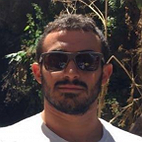Hyperledger has announced it is onboarding eight new members joining its global enterprise blockchain community. The new members will become part of the Linux Foundation, and join the existing membership line-up in their efforts to advance cross-industry blockchain technologies.
Among the organizations joining Hyperledger are IOV Labs and IOHK, the respective companies behind the RSK and Cardano platforms. They join a well-established group of members, which includes ConsenSys, IBM, and JPMorgan.
The onset of a global pandemic has done little to deter Hyperledger from its mission. The organization has been forced to perform its community building initiatives online, developing webinars and online events to replace physical meetings. These efforts include a case study by Chainyard and IBM Blockchain, engaging 25 major corporate participants in a production network called Trust Your Supplier.
Hyperledger also recently confirmed its 16th project. Hyperledger Cactus is a tool designed to allow users to integrate different blockchains securely.
Speaking of the latest raft of member onboarding, Hyperledger Executive Director Brian Behlendorf said:
"It’s never been clearer that we are past the proof of concept stage for enterprise blockchain. As our line-up of new members underscore, the Hyperledger community is about putting blockchain to work in impactful ways around the world and across industries."
The new members will now join Hyperledger in its efforts to provide enterprise-grade, open-source distributed ledger frameworks, libraries and tools.
Bringing Argentine Experience to Hyperledger’s Arsenal
Among the newcomers is IOV Labs, the Argentinian firm behind the RSK platform and technology stack developed on the Bitcoin blockchain. Since acquiring RSK Labs in November 2018, the firm has been on a steady program of expansion. It now has offices around the globe, including Gibraltar, Singapore, Shanghai and Uruguay. Last year, IOV Labs made the strategic acquisition of Taringa, the biggest social network in Latin America, with 30 million users.
More recently, its enterprise arm has been gaining momentum. In March, a permission blockchain called Gasnet launched on an enterprise version of RSK. It’s designed to speed up and secure the gas certification process in Argentina, which is notoriously slow.
In April, the company was confirmed to be among the members of a consortium working with the Central Bank of Argentina as part of a pilot program to implement blockchain. The platform uses the enterprise version of RSK to allow for end-to-end traceability of account debit claims. Other members of the consortium include Banco Santander and BBVA.
Of the news that his firm is joining Hyperledger, IOV Labs CEO Diego Gutierrez Zaldivar stated:
"All of the software used within the RSK network and developed by IOV Labs is open-sourced, and our ethos closely aligns with that of Linux. Our membership of the Linux Foundation and Hyperledger will accelerate the adoption of open blockchain standards that foster financial freedom, transparency and trust."
Blockchain Alliances - Greater than the Sum of Their Parts
Given that a significant amount of blockchain’s value is in its capacity to enable trustless transactions between parties, it's unsurprising that most of the real use cases are to be found when companies collaborate. Earlier in June, Tencent Cloud announced it was starting its own collaboration, called the "Industrial Blockchain Alliance." The company, which is behind WeChat, holds several blockchain patents and ranks with Alibaba and Huawei as being one of China’s top blockchain firms.
Tencent aims to onboard 100 members to its alliance, which will operate in three different committees. Each will be responsible for its respective area of blockchain standards, technical matters and commercial ecosystems.
The firm recently committed to investing $70 million in emerging technologies including AI, blockchain and cloud computing. The investment decision was prompted by the coronavirus pandemic, which has underscored the role that technology can play in keeping the economy afloat during a crisis.

